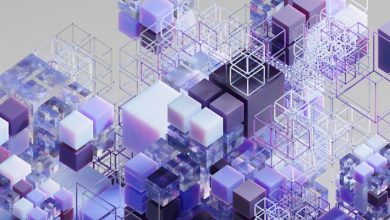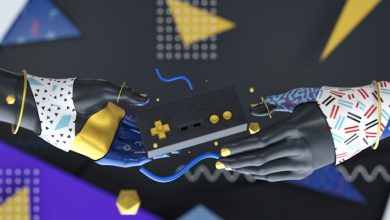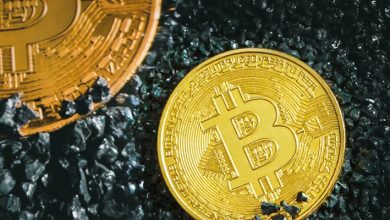The Role of Blockchain in Building the Metaverse Economy

- Understanding the basics of blockchain technology
- Exploring the concept of the metaverse and its economic potential
- How blockchain is revolutionizing digital ownership and transactions in the metaverse
- Challenges and opportunities for integrating blockchain in the metaverse economy
- The impact of decentralized finance (DeFi) on the metaverse economy
- Future outlook: The potential of blockchain in shaping the metaverse economy
Understanding the basics of blockchain technology
Blockchain technology is a decentralized, distributed ledger system that securely records transactions across a network of computers. Each block in the chain contains a cryptographic hash of the previous block, creating a secure and tamper-proof record of all transactions. This technology is the foundation of cryptocurrencies like Bitcoin and Ethereum and has the potential to revolutionize various industries beyond finance.
One of the key features of blockchain technology is its transparency and immutability. Once a transaction is recorded on the blockchain, it cannot be altered or deleted. This makes blockchain ideal for building trust in transactions and reducing the risk of fraud. Additionally, blockchain enables peer-to-peer transactions without the need for intermediaries, reducing costs and increasing efficiency.
Smart contracts are another important aspect of blockchain technology. These self-executing contracts are stored on the blockchain and automatically execute when predetermined conditions are met. Smart contracts can streamline complex processes, such as supply chain management and digital rights management, by eliminating the need for manual intervention.
As the metaverse economy continues to grow, blockchain technology will play a crucial role in enabling secure and transparent transactions within virtual worlds. By leveraging blockchain, virtual assets like digital currencies, virtual real estate, and in-game items can be securely bought, sold, and traded. This will open up new opportunities for creators, developers, and users to participate in the metaverse economy with confidence.
In conclusion, blockchain technology is a powerful tool that can revolutionize the way transactions are conducted in the metaverse economy. Its transparency, immutability, and efficiency make it an ideal solution for building trust and enabling seamless transactions in virtual worlds. By understanding the basics of blockchain technology, stakeholders in the metaverse economy can harness its potential to drive innovation and growth in this emerging digital landscape.
Exploring the concept of the metaverse and its economic potential
The metaverse is a virtual reality space where users can interact with a computer-generated environment and other users. This concept has gained popularity in recent years, with many seeing it as the next frontier of the internet. One of the key drivers behind the metaverse is blockchain technology, which enables secure and transparent transactions in virtual worlds. By leveraging blockchain, the metaverse can create a decentralized economy where users have full ownership of their digital assets. This economic potential is vast, with opportunities for virtual real estate, digital currencies, and virtual goods trading.
In the metaverse, users can buy, sell, and trade digital assets using blockchain technology. This opens up a whole new world of economic opportunities, allowing users to monetize their time and creativity in virtual environments. For example, users can create and sell virtual goods, such as clothing, accessories, or even virtual real estate. These transactions are secured by blockchain, ensuring that ownership rights are protected and transactions are transparent. As the metaverse economy grows, we can expect to see new business models emerge, creating a vibrant digital economy.
Moreover, the metaverse has the potential to redefine how we think about work and employment. In a virtual world powered by blockchain, users can earn a living by providing services, creating content, or participating in virtual events. This opens up new possibilities for remote work, gig economy opportunities, and entrepreneurship. With the rise of the metaverse economy, we may see a shift in how we perceive value creation, with digital assets and experiences becoming just as valuable as physical ones.
Overall, the concept of the metaverse and its economic potential are closely intertwined with blockchain technology. By leveraging blockchain, the metaverse can create a decentralized economy where users have full control over their digital assets. This opens up a world of opportunities for virtual commerce, entrepreneurship, and new forms of work. As the metaverse continues to evolve, we can expect to see new economic models emerge, shaping the future of the digital economy.
How blockchain is revolutionizing digital ownership and transactions in the metaverse
Blockchain technology is playing a crucial role in transforming digital ownership and transactions within the metaverse. By utilizing blockchain, users can securely buy, sell, and trade digital assets such as virtual real estate, in-game items, and digital artwork. This decentralized ledger ensures that ownership rights are transparent, immutable, and verifiable, eliminating the need for intermediaries.
One of the key advantages of blockchain in the metaverse is the concept of smart contracts. These self-executing contracts are stored on the blockchain and automatically enforce the terms of an agreement between parties. This feature enables secure and trustless transactions, reducing the risk of fraud or disputes.
Furthermore, blockchain technology enables interoperability between different virtual worlds and platforms within the metaverse. Users can seamlessly transfer their digital assets across various applications, creating a unified and interconnected virtual economy. This interoperability fosters innovation and collaboration, driving the growth of the metaverse ecosystem.
Challenges and opportunities for integrating blockchain in the metaverse economy
Integrating blockchain technology into the metaverse economy presents both challenges and opportunities for stakeholders in the digital realm. By leveraging blockchain, the metaverse can enhance security, transparency, and interoperability among virtual assets and transactions.
One of the main challenges of integrating blockchain in the metaverse economy is the scalability issue. As the metaverse grows, the blockchain network must be able to handle a high volume of transactions without compromising speed and efficiency. Additionally, ensuring the privacy and security of user data in a decentralized environment is another hurdle that needs to be overcome.
On the other hand, the integration of blockchain technology in the metaverse opens up new opportunities for innovation and growth. Smart contracts, non-fungible tokens (NFTs), and decentralized finance (DeFi) applications can revolutionize how virtual assets are created, traded, and managed within the metaverse ecosystem.
Moreover, blockchain can enable a more democratic and inclusive economy in the metaverse by providing users with greater control over their digital identities and assets. This can lead to new business models, revenue streams, and collaborative opportunities that were previously not possible in centralized virtual worlds.
The impact of decentralized finance (DeFi) on the metaverse economy
Decentralized finance (DeFi) has been making waves in the metaverse economy, revolutionizing the way transactions are conducted and assets are managed. DeFi leverages blockchain technology to create a financial system that is not reliant on traditional banking institutions. This has significant implications for the metaverse economy, as it allows for greater financial inclusion and accessibility for users.
One of the key impacts of DeFi on the metaverse economy is the ability to provide decentralized lending and borrowing services. This enables users to access liquidity without the need for intermediaries, reducing costs and increasing efficiency. In addition, DeFi platforms offer a wide range of financial products, such as decentralized exchanges and automated market makers, that allow users to trade assets in a secure and transparent manner.
Furthermore, DeFi plays a crucial role in enabling the creation and management of non-fungible tokens (NFTs) in the metaverse. NFTs are unique digital assets that represent ownership of a particular item or piece of content. By leveraging DeFi protocols, users can create, buy, sell, and trade NFTs in a decentralized and trustless manner, opening up new opportunities for creators and collectors in the metaverse economy.
Future outlook: The potential of blockchain in shaping the metaverse economy
Looking ahead, the potential of blockchain technology in shaping the metaverse economy is immense. By leveraging the decentralized and transparent nature of blockchain, virtual worlds can be built with secure and reliable transactions, ownership of digital assets, and smart contracts. This will enable a seamless digital economy within the metaverse, where users can trade, buy, and sell virtual goods with confidence.
Blockchain can also address issues of interoperability between different virtual worlds, allowing for the seamless transfer of assets and data. This will create a more connected and cohesive metaverse experience for users, regardless of the platform they are on. Additionally, blockchain can enable the creation of unique digital identities and reputation systems, enhancing trust and security within the metaverse ecosystem.
Furthermore, the use of blockchain in the metaverse economy can unlock new revenue streams for creators and developers. Through tokenization and decentralized finance (DeFi) platforms, content creators can monetize their creations directly, bypassing traditional intermediaries. This will democratize access to the metaverse economy, allowing anyone to participate and benefit from its growth.






